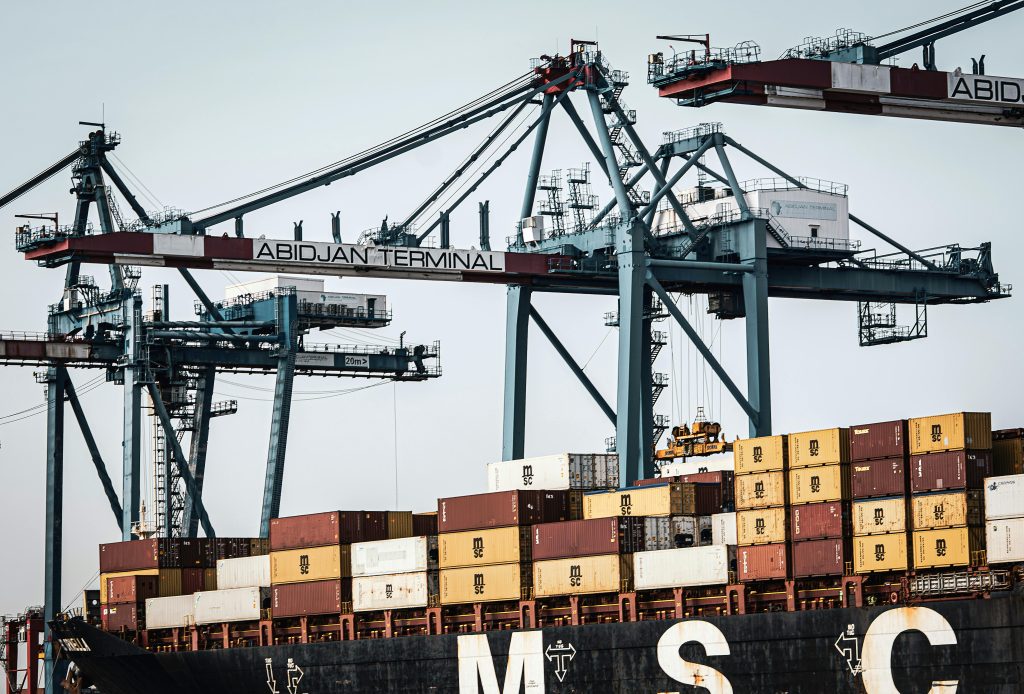EU Accelerates Investment in West Africa for Stronger Economic Ties
The European Union is significantly ramping up its trade and investment in West Africa, signaling a transformative phase in the region’s economic landscape. As global markets evolve and strategic partnerships take center stage, the EU’s renewed focus on fostering deeper commercial ties with West African nations is set to unlock new growth opportunities, strengthen regional infrastructure, and support sustainable development

This surge in investment in West Africa not only reflects Europe’s commitment to mutual prosperity but also highlights the region’s rising potential as a vital hub for global trade and innovation.
Why the EU Is Prioritizing Investment in West Africa
The European Union (EU) is intensifying efforts to boost trade and investment in West Africa, a move described by an EU official as a top strategic priority. With West Africa home to some of the continent’s largest economies—namely Nigeria, Ghana, and Ivory Coast—the region’s role in shaping Africa-EU relations is becoming more critical.
According to a high-ranking source within the EU, the bloc sees West Africa as a vital partner due to its proximity and interconnected social, economic, and migratory ties with Europe.
Economic Growth Fuels EU’s Interest in Investment in West Africa
Countries across West Africa have witnessed steady economic growth in recent years. This consistent upward trend has attracted the EU’s attention, encouraging the bloc to engage more closely through trade agreements and strategic development plans that increase investment in West Africa.
The EU believes that economic collaboration with this region can offer mutual benefits—fueling job creation, infrastructure development, and industrial diversification.

The Economic Partnership Agreement (EPA): A Catalyst for Investment
One of the EU’s most powerful tools for encouraging investment in West Africa is the Economic Partnership Agreement (EPA). This trade and development deal seeks to open markets and strengthen long-term cooperation between Europe and West African countries.
The agreement has been signed by all EU members and most West African nations, with Nigeria being the notable exception. Even so, the EU remains open to negotiations with Nigeria to address concerns and build consensus.
Ghana and Ivory Coast Lead in EPA-Driven Growth
Ghana and Ivory Coast, both signatories of interim EPAs, have seen significant economic benefits since the agreement’s implementation. Between 2014 and now, total trade between the EU27 and these two countries has surged by 18%.
More impressively, their exports of locally processed cocoa products have increased by 50% and 30% respectively, showing a shift from raw exports to value-added goods—a key aim of increasing investment in West Africa.
Both countries are gradually moving beyond the export of raw cocoa beans to cocoa products processed locally, thereby responding to the growing local demand, and consumption of “made in Africa” goods.
A Closer Look at Ghana-EU Trade Figures
In 2023, total trade between the EU and Ghana reached €6 billion. Despite a 3% decrease compared to 2022, the nature of the trade has evolved.

EU exports to Ghana declined by 11%, while imports from Ghana rose by 8%, increasing from €2.4 billion to €2.6 billion.
The EU’s trade surplus with Ghana shrank nearly by half—from €1.3 billion in 2022 to €700 million in 2023—illustrating a more balanced partnership and greater returns from investment in West Africa.
The source confirmed that the EU was open to consider all the options, including engaging in discussions with Nigeria on concerns including the apprehension that EU products would flood Nigerian markets, to reach a consensus to pave the way for the signing of the EPA deal.
SIFA: A New Chapter in Investment in West Africa
Beyond the EPA, the EU is rolling out a new initiative called the Sustainable Investment Facilitation Agreement (SIFA). This initiative aims to make investment in West Africa more attractive, streamlined, and sustainable.
After successfully partnering with Angola, the EU has begun exploratory talks with Ghana, Ivory Coast, and Nigeria to expand SIFA’s scope in West Africa.
How SIFA Supports Investment in West Africa
SIFA is designed to simplify the investment process, encourage diversification into non-traditional sectors like food exports, services, and manufacturing, and foster digital transformation through e-government systems. The initiative also aims to uphold labor and environmental standards, promote corporate responsibility, and enhance transparency—cornerstones of ethical investment in West Africa.
It promotes mutual commitments from both investors and host governments, ensuring that business practices remain socially and environmentally responsible.
Nigeria’s Role in Shaping Future Investment in West Africa
Although Nigeria has yet to sign the EPA, the EU remains optimistic. Discussions are underway to address Nigeria’s concerns, particularly fears that European imports could overwhelm local industries. By finding common ground, the EU hopes to bring Nigeria on board—an essential step to fully unlocking the region’s investment potential.
Nigeria’s participation could significantly elevate the scale of investment in West Africa, given its population size and economic weight.
The Bigger Picture: Why Investment in West Africa Matters Now
The EU’s accelerated push for investment in West Africa is more than a strategic move; it’s a testament to a future built on shared prosperity. From improved trade balances and processed goods exports to sustainable investment standards, West Africa is emerging as one of the most promising regions for economic growth and transformation.
The EU’s approach reflects a broader vision of inclusive development, where both partners contribute to, and benefit from, long-term cooperation.
Frequently Asked Questions
Why is the EU focusing on investment in West Africa?
The EU sees West Africa as strategically important due to its geographic proximity, economic potential, and growing regional markets.
What is the Economic Partnership Agreement (EPA)?
The EPA is a trade and development agreement between the EU and West African nations designed to enhance trade, reduce tariffs, and boost economic growth.
What is SIFA and how does it benefit West Africa?
SIFA, or the Sustainable Investment Facilitation Agreement, is a new EU initiative to attract and retain foreign investments while ensuring ethical and sustainable practices.
How have Ghana and Ivory Coast benefited from the EPA?
Both countries have increased their exports of processed cocoa products significantly, showing progress in industrialization and local value addition.
Is Nigeria part of the EPA?
Not yet. Nigeria has expressed concerns but remains in discussions with the EU to potentially join in the future.
How does the EU ensure investments are sustainable in West Africa?
Through SIFA, the EU promotes labor and environmental protections, transparency, and corporate social responsibility to ensure sustainable development.
Conclusion: EU and West Africa Forge a Stronger Future Through Investment
The European Union’s deepening engagement through the EPA and SIFA underscores its strong commitment to advancing investment in West Africa. As trade grows and infrastructure improves, the region is becoming a magnet for global investors looking for sustainable and inclusive growth opportunities. By addressing challenges and fostering dialogue, the EU and West Africa are laying the groundwork for a future of mutual prosperity.
Source: GNA
